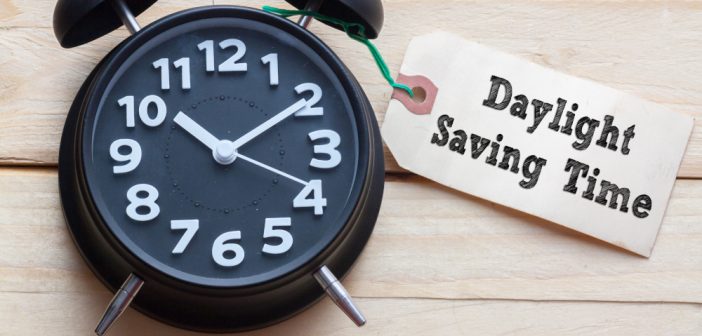By now, you’ve probably formed an opinion about the prospect of permanently switching to daylight saving time. Several weeks ago, the US Senate unanimously passed a bill called the Sunshine Protection Act, which proposes abolishing America’s twice-a-year time shift. Supporters of the proposal highlight its positive outcomes, including the possibility of later outdoor activities, lower crime rates and economic benefits. But what about its effects on our health?
Scientists and doctors agree that refraining from switching our clocks twice a year can benefit our physical and mental health in a variety of ways. The most obvious benefit of maintaining a standard time schedule is a better night’s sleep. However, being well rested doesn’t just feel good—it can also prevent depressive episodes, accidents, strokes and even heart attacks from happening. Learning more about these health effects can help you prepare to adopt a new normal—or at least inform you of the challenges that continue to accompany daylight saving time.
Better Sleep
Who can refuse a better night’s sleep? Studies show that abolishing the time shifts of daylight saving time can improve our sleep. According to nm.org, our sleep health is based on two factors: circadian rhythm (our body’s inherent sleep-wake cycle) and sleep homeostasis (the desire to sleep that increases from the moment you awaken). Since daylight saving time abruptly shifts the time at which we awaken and fall asleep, our sleep cycle and homeostasis are disrupted, causing us to feel tired or awake at the wrong times. Without this change taking place, our bodies can maintain their normal sleep patterns.
Improving our sleep can also improve a number of other health concerns. As shared by The Vivos Institute, “Healthy sleep is essential for our mental and physical well-being. Adequate sleep supports healthy brain function and emotional stability. . . . While we rest, our bodies have time to repair themselves. Sleep promotes healing.”
Improved Mental Health
One of the areas that a good night’s rest can affect is mental health. A 2008 study on the correlation between daylight saving time and suicide rates concluded that the fall transition out of daylight saving time temporarily increases male suicides. What’s more, a recent study from 2020 found that more suicides occurred in the US during daylight saving time. With a permanent shift to daylight saving time, some of these lives could potentially be saved.
In addition to suicide rates, depressive episodes also see an increase with the transition of daylight saving time. One study using data from the Danish Psychiatric Central Research Register saw an 11 percent increase in depressive episodes during the daylight to standard time transition. With the seasonal change becoming more pronounced during daylight saving time, it’s no wonder that seasonal depression can hit even harder.
Accident Prevention
The switch to daylight saving time also has been linked to higher rates of accidental injury. A 2020 study from cell.com found that car accidents in the US spike by 6 percent during the transition to daylight saving time. By eliminating this time shift, individuals will be able to get adequate rest and prevent costly and injurious accidents.
In addition, one study from APA found that workplace accidents in the US increased 5.7 percent with the transition into daylight saving time. If this transition didn’t need to occur, many individuals could save time, money and even their own personal health.
Decreased Stroke Risk
While everyone knows that being tired can negatively affect your mood and ability to think, it’s a lesser-known fact that losing sleep can complicate your physical health, too. Researchers from AAN found in 2016 that the overall rate of the common stroke was 8 percent higher immediately following the daylight saving time transition. In addition, they found that “people with cancer were 25 percent more likely to have a stroke after daylight saving time than during another period.” If this transition period were to discontinue, it’s likely that these trends in strokes would follow suit.
Fewer Heart Attacks
Just as getting better sleep can reduce your risk of stroke, it can reduce your risk of heart attacks, too. A 2019 Italian study observed a significantly higher risk of heart attack during the two weeks following spring or autumn daylight saving time transitions. Since your body’s internal rhythms and functions can affect your overall health, it’s important to maintain them on their proper cycles. With the adoption of a static time calendar, your body can enjoy a decreased risk of serious health complications.
While some researchers debate the merits of permanently switching to standard time rather than daylight time, they do agree on one thing: switching back and forth during the year isn’t good for us. And, although daylight saving time may have benefited us in the past, it’s clear that those times have come to an end, at least for our health. As we prepare ourselves for the potential transition to a permanent standard or daylight time, we can expect many changes in our health and well-being to follow—hopefully, most of them good.
A version of this article was published by The Daily Herald. It has been republished here with permission.




